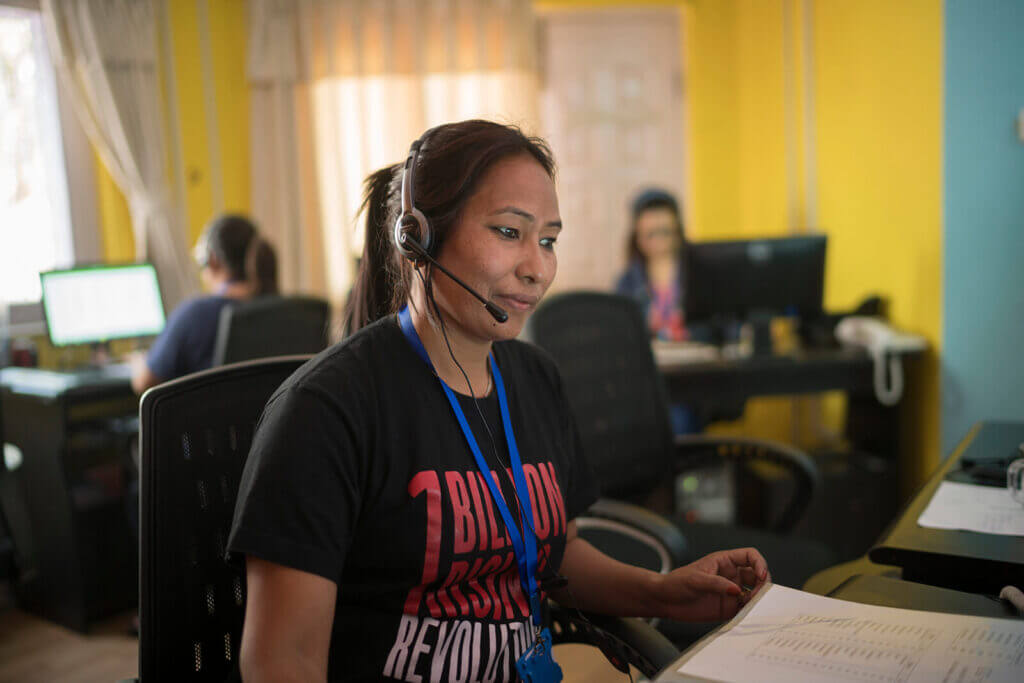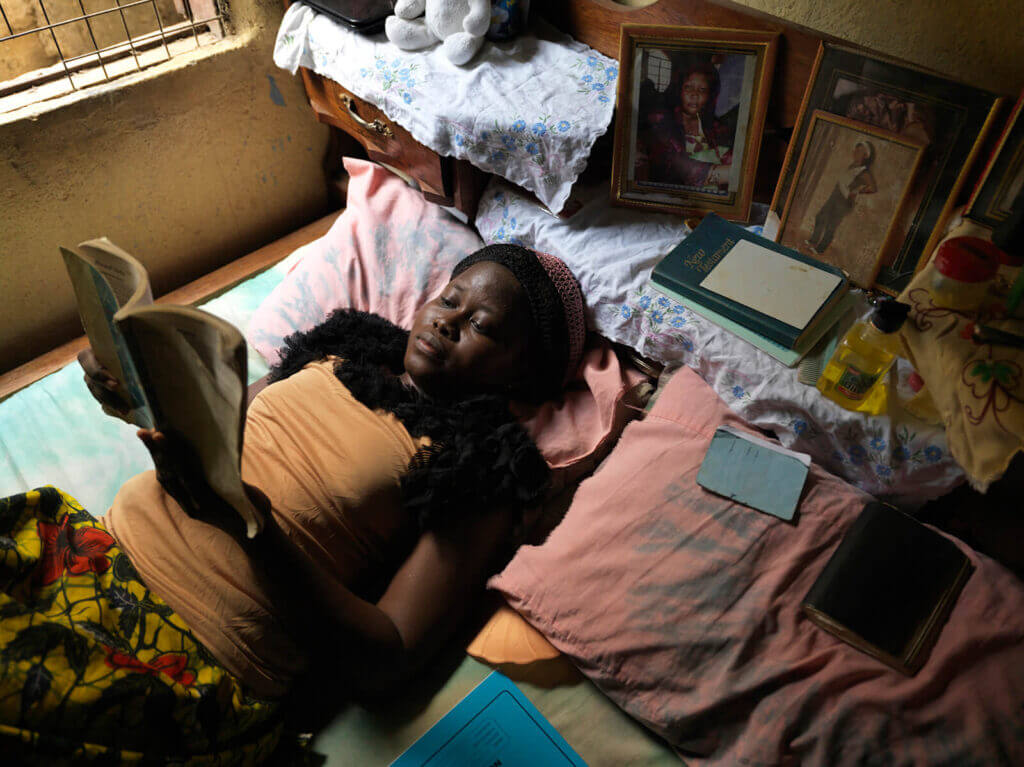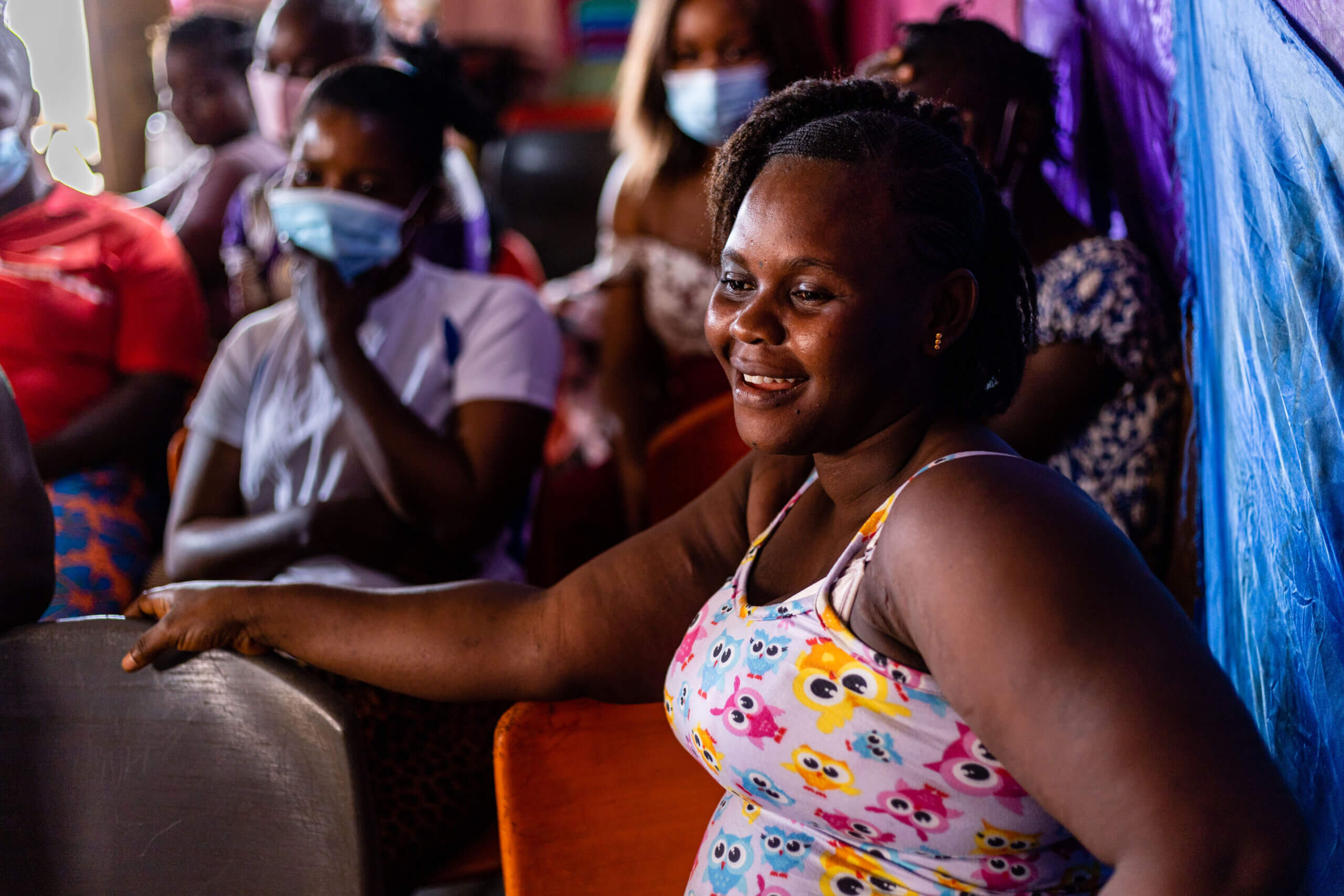Let’s listen to clients on telemedicine abortion care
This time last year, much of the world went into lockdown, putting access to sexual and reproductive healthcare at risk. However, with rapid healthcare innovation, evidence-based policy decisions and key partnerships, we introduced telemedicine in several countries. This protected access to early medical abortion care via at-home services.
One year on, we look at the impact that telemedicine has had across MSI’s programs. The global body of evidence – and clients directly – tell us that telemedicine should remain available as a permanent option.
Facts about telemedicine
- A study led by the University of Texas found that telemedicine abortion care was just as safe and effective as in-facility care.
- A second study published in the British Medical Journal found that 8 out of 10 clients preferred at-home abortion care.
- Telemedicine abortion care allows us to reach clients who wouldn’t otherwise have access.

Telemedicine abortion in the UK proves safe and effective
In April 2020, MSI launched our UK telemedicine program. The program allows tele-consultations and the self-administration of medical abortion pills – mifepristone and misoprostol – from home. Our clinics remained open for those who needed or would prefer face-to-face care, but for the first time in UK history, eligible early medical abortion clients were able to administer both stages of their medical abortion from home. These clients went through a virtual consultation to ensure their suitability, before receiving their medical abortion pills by mail.
Prior to the pandemic, global evidence from both MSI’s program in Australia and a review of programs by colleagues at the WHO had shown telemedicine to be just as safe and effective as in-facility care. The introduction of telemedicine in the UK, from MSI UK and reproductive health organizations BPAS and NUPAS, provided a unique opportunity to add to this global body of evidence. We tracked the outcomes of a program delivered at scale. With this, two ground-breaking studies have been published revealing outcomes even more compelling than anticipated.
The first study, led by the University of Texas, featured the outcomes of more than 50,000 early medical abortions, provided by MSI UK, BPAS and NUPAS. The study – the largest ever on abortion care – was published in The British Journal of Obstetrics and Gynaecology, and found that telemedicine abortion services were just as safe and effective as in-facility care. The study also found that telemedicine abortion care reduced the time from when a client received their consultation to when they received treatment. In-person, wait times averaged 10.7 days; with telemedicine, the wait was just 6.5 days.

Clients prefer at-home telemedicine abortion care
While it was important to prove that the services were clinically sound and safe, we also wanted to hear directly from clients about their experience of telemedicine. Would they choose telemedicine or face-to-face care if they needed care in the future? With that in mind, MSI Reproductive Choices published a second paper in the British Medical Journal, focused on client preferences.
By analyzing feedback data from a sample of telemedicine clients, we revealed that at-home abortion care, via telemedicine, is the preferred choice for 8 out of 10 clients (83%). Two-thirds of clients shared that they would choose the route again should they ever need an abortion in the future, even if COVID-19 were no longer an issue.
We heard that many clients preferred having their consultation over the phone, as it can feel more private and less stressful than visiting a clinic. Many people fear judgment about abortion, even from clinicians. The pressure is worsened by anti-abortion groups that continue to harass clients outside clinics. Many clients find it hard to leave the house without those they live with finding out why. By providing telephone consultations and medicines by post we remove these barriers. With telemedicine, clients can access confidential care in the comfort of their own homes.
The privacy of telemedicine provides a unique opportunity to support the most marginalized, including young women and women at risk of violence who might otherwise find it difficult to access care and support. One MSI UK telemedicine client, Sylvie, shared that her experience of accessing a medical abortion via telemedicine was “respectful”, “compassionate” and, crucially for her, “private”.

Lessons from South Africa: Telemedicine abortion care expands access
COVID-19, and these common barriers to abortion care, are not limited to the UK. To expand access to safe, effective and confidential abortion care elsewhere, we have used learnings from our UK program to explore similar models in other MSI programs. In South Africa, we launched our telemedicine program in April 2020.
In South Africa, despite relatively liberal abortion laws, women often seek unsafe services. Challenges in accessing safe, facility-based care continues to drive women to unsafe abortions, including an inability to travel to facilities. This is particularly challenging for women living in rural regions.
With the introduction of telemedicine, MSI South Africa saw an opportunity to increase access. They could protect early medical abortion services during lockdowns, and expand access beyond the pandemic, particularly to women who might otherwise be unable to access care.
Over 3,200 women have accessed safe abortion care via telemedicine so far. This includes women in rural, underserved communities. One in ten clients are based in regions not previously served by MSI. As one client shared: “I found out I was pregnant during the lockdown period. I am studying at Rhodes University and could not think of a way to get to PE [Port Elizabeth] for the service, so I was referred to telemedicine. It was a speedy service.”

What’s next for telemedicine abortion care?
Medical abortion via telemedicine is not a panacea. Access to facility-based care remains vital for those who would prefer to access face-to-face care, for clients seeking an abortion at later stages of pregnancy, or as often seen in MSI’s global programs, for clients facing complications from a previous unsafe abortion attempt. However, what the evidence shows is that telemedicine provides a safe and effective pathway that’s preferable to clients and must be protected.






